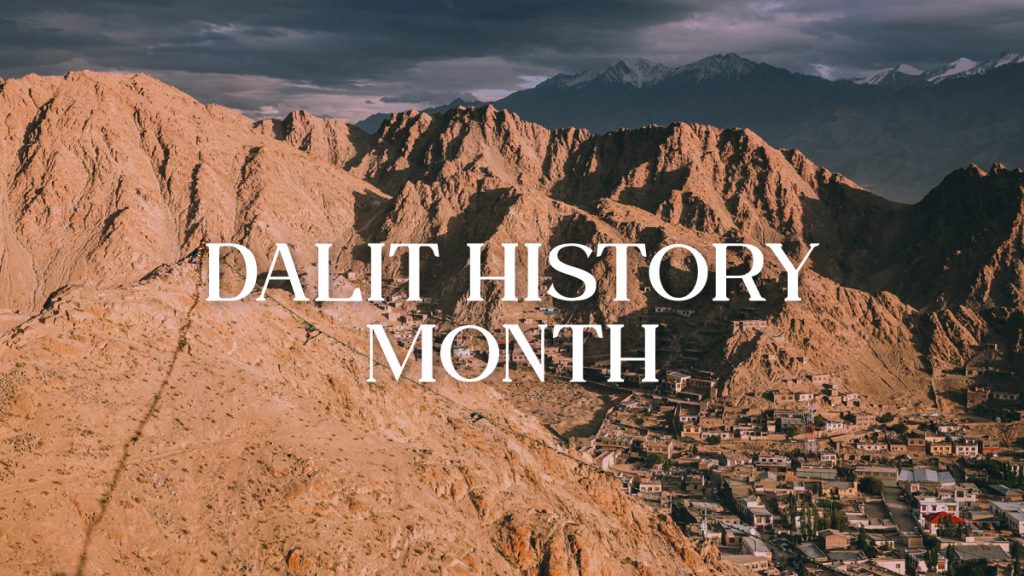Dalit History Month, observed every year in April, is a month dedicated to honoring the history, contributions, and struggles of Dalits in India and across the world. This month-long observance celebrates the lives of Dalit leaders, activists, and communities that have contributed to social justice, equality, and the fight against caste-based oppression. It is a time to reflect on the ongoing movement for Dalit rights and the efforts to dismantle the caste system.
Table of Contents
Dalit History Month Dates for 2024, 2025, and 2026
| Year | Start Date | End Date | Duration |
|---|---|---|---|
| 2024 | 1st April | 30th April | 30 days |
| 2025 | 1st April | 30th April | 30 days |
| 2026 | 1st April | 30th April | 30 days |
What is Dalit History Month?
Dalit History Month was founded to raise awareness about the contributions and histories of Dalit individuals and communities, who have historically been marginalized and oppressed due to India’s caste system. The observance of Dalit History Month highlights the resilience, leadership, and resistance of Dalit people in the face of centuries of systemic injustice.
Dalits, often referred to as “untouchables” in the past, are at the lowest rung of the traditional Hindu caste hierarchy. While India’s Constitution outlawed the practice of untouchability in 1950, caste-based discrimination continues to affect millions of people across the country. Dalit History Month aims to shed light on this persistent issue and celebrate the achievements of Dalit figures who have worked towards social equality.
Significance of Dalit History Month in India
Dalit History Month is significant for several reasons:
- Honoring Dalit Leaders and Icons:
The month celebrates the lives and legacies of prominent Dalit leaders such as Dr. B.R. Ambedkar, Jyotirao Phule, and Savitribai Phule. These figures played a key role in advocating for the rights of Dalits and other marginalized communities, making significant contributions to education, politics, and social justice. - Raising Awareness of Dalit Struggles:
Dalit History Month draws attention to the ongoing issues faced by Dalit communities, including caste-based discrimination, violence, and exclusion from opportunities. It aims to amplify the voices of Dalit activists working towards equality and human rights. - Educational Impact:
This month provides an opportunity for schools, colleges, and educational institutions to teach students about Dalit history and the systemic barriers that Dalits have faced throughout India’s history. It encourages critical conversations about caste, inequality, and social justice. - Global Solidarity:
Dalit History Month is not just observed in India but has also gained international recognition, particularly among Dalit diaspora communities. It fosters a sense of global solidarity in the fight against caste-based oppression and discrimination.
How Dalit History Month is Celebrated
Dalit History Month is celebrated through a variety of activities and events aimed at educating and inspiring action for social justice. Here’s how the month is observed:
- Educational Programs and Workshops:
Throughout April, schools, universities, and organizations hold workshops, lectures, and panel discussions to raise awareness about Dalit history and the ongoing fight for equality. These programs often focus on the legacies of Dalit leaders, the impact of caste discrimination, and ways to dismantle casteism. - Community Events and Exhibitions:
Dalit History Month is marked by cultural events, art exhibitions, and public gatherings that highlight the contributions of Dalit artists, writers, and activists. These events serve to celebrate Dalit identity and heritage while also creating spaces for dialogue and reflection on issues of caste and oppression. - Film Screenings and Literature Discussions:
Documentaries, films, and literary works related to Dalit experiences are often showcased during Dalit History Month. These screenings and discussions aim to shed light on the realities of caste discrimination and inspire empathy and action toward social justice. - Honoring Dalit Icons:
Special events are held to honor key figures in Dalit history, such as Dr. B.R. Ambedkar, who was instrumental in drafting the Indian Constitution and advocating for the abolition of the caste system. Statues of Dalit leaders are garlanded, and memorials are visited to pay homage to their contributions. - Social Media Campaigns:
Social media plays a significant role in spreading awareness about Dalit History Month. Hashtags such as #DalitHistoryMonth are used to share stories, articles, and art that celebrate Dalit contributions and challenge caste-based discrimination.
Why Dalit History Month is Important
Dalit History Month is a crucial observance that addresses the historical and ongoing marginalization of Dalit communities. It offers an opportunity to confront the deeply ingrained caste-based hierarchies and challenge social norms that perpetuate inequality. By recognizing the achievements and contributions of Dalit individuals, Dalit History Month promotes dignity, respect, and equality for all.
The observance also serves as a reminder of the work that still needs to be done to achieve social justice in India. Despite legal protections, caste-based discrimination continues to affect millions of Dalits, making it important to raise awareness and advocate for systemic change.
More Information about Dalit History Month in India
- What is the significance of Dalit History Month?
Dalit History Month is a time to celebrate the contributions of Dalit leaders and communities while raising awareness of the ongoing struggles faced by Dalits due to caste-based discrimination. It promotes social justice and equality. - How is Dalit History Month celebrated?
Dalit History Month is celebrated with educational programs, workshops, community events, film screenings, and social media campaigns that focus on Dalit history, culture, and the fight against casteism. - Who are some key figures celebrated during Dalit History Month?
Prominent figures celebrated during Dalit History Month include Dr. B.R. Ambedkar, Jyotirao Phule, Savitribai Phule, and many other Dalit activists and leaders who fought for social justice and equality. - Why is Dalit History Month important today?
Dalit History Month remains important because caste-based discrimination continues to impact millions of Dalits in India. The month serves as a platform to advocate for social justice, educate others about casteism, and celebrate the resilience of Dalit communities.

